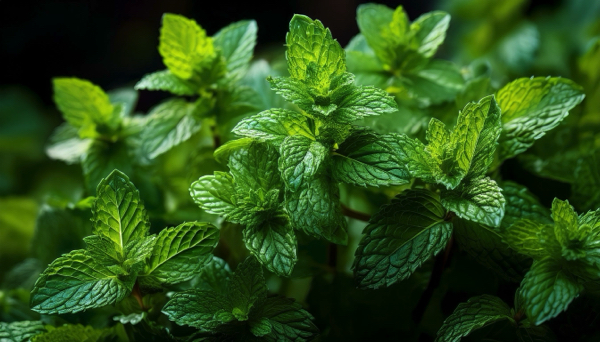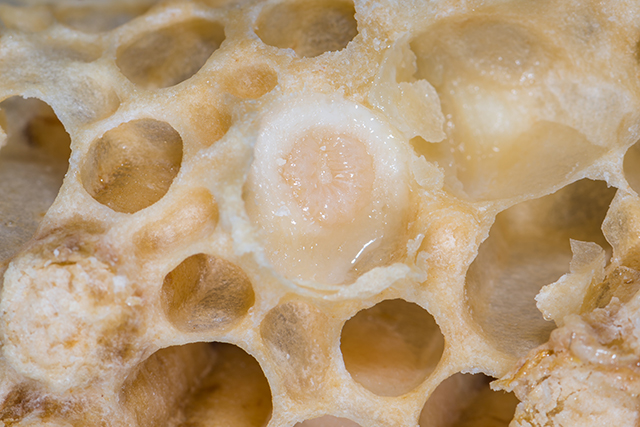Magical mint: 20 Top health benefits
01/12/2025 / By News Editors

Here are 20 health benefits you can expect from mint in its many different, wonderful forms, from peppermint to spearmint to wild mint
(Article republished from GreenMedInfo.com)
Mint is most popularly known for the cooling sensation it brings to the palate. But more than just being a flexible ingredient in herbal teas, sauces and dips, desserts and tasty beverages, it is also a rich source of health benefits.
Mint is the name representing a group of perennial herbs cultivated in various parts of the world, from the Mediterranean basin where it’s believed to have originated to Asia, the U.S., Morocco, Argentina and Europe.[i] Peppermint, spearmint and bergamot mint are just a few renowned species within the genus Mentha.
20 Mint Health Benefits
Let’s have a closer look at some of the refreshing science-based benefits of mint to human wellness.
- Alertness — In a study, smelling peppermint oil while driving led to greater alertness along with reduced levels of frustration, anxiety and fatigue.[ii]
- Allergic rhinitis — Peppermint may be clinically sound in alleviating the nasal symptoms of allergic rhinitis, including sneezing.[iii]
- Antifungal — In a study, many natural extracts demonstrated antifungal activity against Candida albicans, yet the strongest antifungal action was seen from peppermint, green tea, henna tree, rose geranium and Persian lime.[iv]
- Colic — A study concluded that peppermint is at least as effective as the drug simethicone in dealing with infantile colic, a distressing condition among infants for which there’s no proven standard treatment.[v]
- Colon cancer — Extracts from thyme, rosemary, sage, spearmint and peppermint can significantly inhibit the growth of colon cancer cells in humans, exhibiting combination effects on cancer growth.[vi]
- Constipation — Aromatherapy involving rosemary, lemon and peppermint can relieve constipation in elderly individuals, leading to a higher number of bowel movements, with effects lasting two weeks after treatment.[vii]
- Diabetes — Spearmint, or aqueous Mentha spicata extract, exhibited an interesting antidiabetic effect in animal models.[viii] Repeated oral administration lowered blood sugar in diabetic rats, comparable to drug (glibenclamide) treatment.
- Indigestion — A study showed that a combination of peppermint oil and caraway oil in capsule form provided effects similar to medications used against indigestion, helping address stomach pain and other digestive symptoms.[ix]
- Irritable bowel syndrome (IBS) –The menthol in peppermint oil is believed to help alleviate IBS symptoms, thanks to its relaxing effects on the muscles of the digestive tract.[x] A review also found that peppermint oil capsules improved symptoms notably better than placebo capsules.[xi]
- Liver damage — Spearmint compounds contain important antioxidant potential in protecting liver and erythrocytes against nicotine-induced oxidative damage.[xii]
- Memory and cognition — A study on 144 young adults revealed that smelling peppermint oil five minutes before an exam produced significant memory improvements.[xiii] Dracocephalum, a member of the mint family, was used by Iranian scientists in a series of placebo-controlled clinical trials on 42 people with early-onset to moderate Alzheimer’s, and was found to improve mental state, anxiety and irritability.[xiv]
- Mouth care — Essential oil mouthwash containing tea tree, peppermint and lemon may reduce bad breath and volatile sulphur compounds among intensive care patients.[xv]
- Nausea — Among surgical patients, aromatherapy with peppermint, ginger or a combination of both led to a statistically significant decrease in the need for antiemetics for treating postoperative nausea and vomiting.[xvi]
- Neck pain — Researchers found that an essential oil cream made from marjoram, black pepper, lavender and peppermint can be used to improve neck pain in patients.[xvii]
- Nipple pain — Peppermint water may alleviate nipple pain and damage associated with breastfeeding.[xviii]
- Osteoarthritis — Peppermint and rosemary essential oils may benefit osteoarthritis. A nanoemulsion containing the oils reduced related pain by increasing antioxidant capacity and improving the knee joints of animal subjects.[xix]
- Polycystic ovarian syndrome (PCOS) — Spearmint holds promise in treating PCOS by inhibiting testosterone and restoring follicular development in ovarian tissue.[xx]
- Respiratory health — Wild mint essential oil was found to prevent airway changes induced by histamine and ovalbumin in animal models, relaxing bronchial smooth muscles and suppressing immunological response.[xxi]
- Sleep — Aromatherapy, lavender and peppermint in a particular study, can help improve sleep quality in cancer patients, a group where this is a common issue.[xxii]
- Skin aging — Peppermint peel skin treatment may be an effective protocol in treating signs of skin aging, such as discoloration, wrinkles and skin inelasticity.[xxiii]
Read more at: GreenMedInfo.com
Submit a correction >>
Tagged Under:
alternative medicine, disease treatments, mint, nutrients, nutrition, Super foods, Xpost
This article may contain statements that reflect the opinion of the author
RECENT NEWS & ARTICLES
consumerwellness.info is a fact-based public education website published by consumerwellness.info
All content copyright © 2023 by consumerwellness.info
Contact Us with Tips or Corrections
All trademarks, registered trademarks and servicemarks mentioned on this site are the property of their respective owners.



















